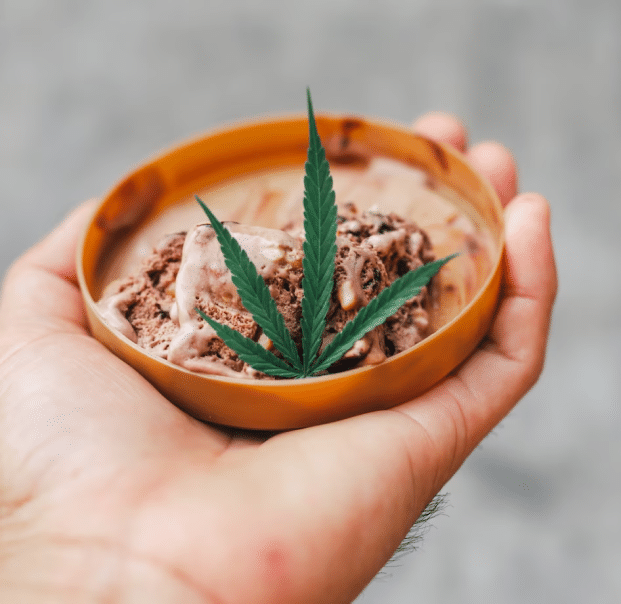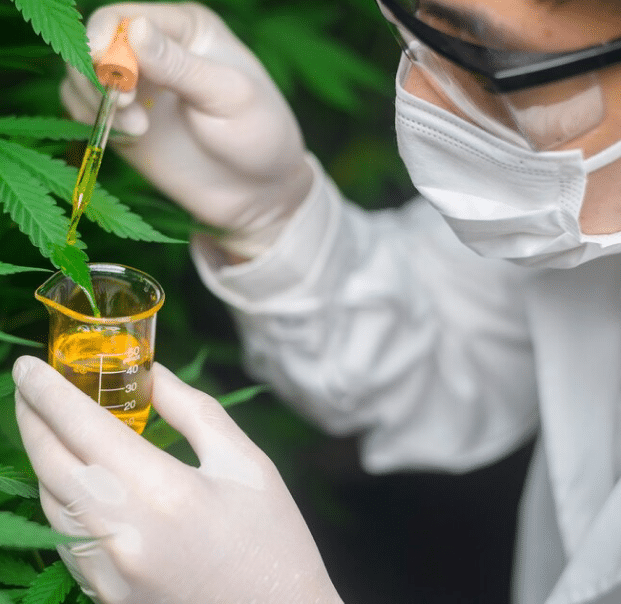Background
Among other US states, Colorado has been at the forefront of rapid Cannabis legalization and has the second-largest Cannabis industry in the country.
This offers several job opportunities to the residents of the state and business prospects for entrepreneurs and business owners. However, the real challenge is obtaining a cannabis license, which is both a complex and demanding process.
This article offers a comprehensive guide to help you understand the requirements and procedures to successfully acquire a Colorado cannabis license. So, let’s get going!
Cannabis License Regulations in Colorado
Colorado first legalized cannabis for medical use in December 2000 and later amended it to legalize adult use in December 2012. Since then, the industry has witnessed perpetual growth, with the introduction of new laws and regulations to facilitate the consumption and distribution of marijuana throughout the state.
In 2020, the state’s sales surged past $2 billion for both medical and adult-use cannabis, which resulted in a total of $9.8 billion since January 2014. Despite the rapid sales, the medical and retail marijuana industries in Colorado are intensively regulated by the Marijuana Enforcement Division.
Cannabis businesses in Colorado must seek the appropriate licenses granted by MED to begin operating within the industry. In addition, they must be licensed by both state and their respective local jurisdiction before commencing operations. Moreover, a separate license is needed for different geographical locations.
As of 2023, there are over 2,700 cannabis licenses in Colorado, and the state does not cap the number of licenses granted. The different types of these licenses include:
- Cultivation
- Manufacturing
- Testing
- Research and Development
- Retail/Dispensary
- Hospitality
- Transporter
- Delivery
- Operator
Types of Cannabis Licenses in Colorado
Cultivation Licenses
Permits for growing cannabis, with various tiers based on facility size and growing conditions.
Manufacturing Licenses
Allows for processing cannabis into various products, including extracts and edibles.
Retail Licenses
Enables the operation of dispensaries and delivery services for medical and/or recreational use.
Distribution Licenses
Required for transporting cannabis products between licensed facilities.
Cultivation Licenses
Licensed by MED. Types include Retail and Medical cultivation. Application requires security, business plan, local approval.
Back to the TopManufacturing Licenses
Licensed for Retail/Medical Infused Product Manufacturing. Strict facility and safety rules.
Back to the TopRetail Licenses
Retail Marijuana Store license. Requires business plan, financials, and local approval.
Back to the TopDistribution Licenses
Transport licenses part of cultivation/manufacturing. No separate license.
Back to the TopHow to Obtain a Cannabis License in Colorado
Research and Prepare
When obtaining your cannabis license, the first, most crucial step is to prepare yourself. Do thorough research and understand each step and the requirements of the application process. Remember to have a thorough understanding of eligibility requirements and regulations.
Then, check whether your local jurisdiction allows the operation of medical and/or retail cannabis businesses within its premises.
MED does not proceed with your license application until your local authority permits it.
Hence, before moving ahead, ensure that you comply with the specific requirements of the local jurisdiction and meet the eligibility criteria from Colorado Cannabis’s official site.
Note: local regulations for retail marijuana licenses may be stricter than state-level regulations.
Develop a Solid Business Plan
The next step after understanding the requirements of your cannabis business is to craft a comprehensive business plan. A solid business plan includes:
- Purpose and description of your business
- Thorough market analysis
- A well-designed market strategy
- Operating Agreement
- Organizational Structure
- Financial Plan
- Security measures
Note: If you are new to the industry, it is highly recommended to seek professional assistance to curate a business plan that complies with the specific requirements.
Assemble the Necessary Documentation
Once you have developed a rigid business plan, the following step is to gather the documents needed to acquire your license. Keep in mind that your documentation requirement may vary depending on the type of license.
Here’s a list of the general documents you need for a Colorado Cannabis License Application:
- Proof of compliance with local zoning regulations
- An organizational chart
- Certificate of good standing from the jurisdiction
- Identity and ownership percentage of all chief business officers
- Facility Diagrams
- Tax Documents
- Local jurisdiction permits
- Proof of Possession of Licensed Property
- Copy of any contracts
- Management Agreements
For a full list of documents required to obtain your license, check out the official application checklist.
Submitting the Application
After gathering all the necessary documents, you can go ahead with filling out and submitting your application for a Colorado Cannabis License.
You have multiple options to submit your application: digital, mail, or in-person. Select the method that suits you best. Additionally, the MED offers three licensing systems, so ensure you go for the one that corresponds to your specific license type.
If you wish to mail your application, check out the MED website for the mailing address. For an in-person submission, schedule an appointment beforehand. In case you wish to submit your applications electronically, sign up with the Colorado Department of Revenue to proceed.
Since the application process is long, ensure you complete each part of your application and double-check whether the information is accurate.
Note: the MED does not complete its intake of your application unless you have cleared the application fee.
Payment and Fees
Note: Fee structures are subject to change. Consult the official California cannabis regulatory website for current fee schedules.
Application Fees
The application fee covers the initial costs associated with processing and reviewing cannabis business license submissions in Colorado. These fees vary depending on the type of license and the size of the proposed operation. It’s essential to ensure all application materials are complete and accurate to avoid delays or additional costs.
License Fees
License fees are required to maintain compliance and secure operating privileges for cannabis businesses in Colorado. These fees are determined based on the license type, such as retail, cultivation, or distribution, and are typically due annually. Staying current with license payments is crucial to avoid penalties or disruptions in business operations.
Application Review and Compliance Inspection
Once your application is submitted, the MED thoroughly checks your application to ensure it complies with Colorado Revised Statutes and MED rules before approving your license request. During this phase, you might have to submit some additional supporting documents or information about your application.
Typically, the MED takes about 45-90 days to respond to your application. During the approval stage, they conduct rigorous background checks, including reviewing criminal records, financial history, and any violations of regulations in the past.
Colorado does not accept the licenses of applicants with criminal backgrounds or fraud. Moreover, the state disqualifies individuals who have been subject to or discharged from felony convictions within three years prior to submitting the application.
It’s essential to note that the MED does not proceed with incomplete applications. In such cases, the applicants need to collect the application (and the fee) before the subsequent business day and refile it.
To successfully pass through the compliance inspections, make sure you have a thorough understanding of the state and county’s cannabis regulations and that your business strictly adheres to them.
Expert Tip: To pass the inspections, conduct regular compliance audits to rectify all the mistakes or non-compliance areas within your application. Try to establish continuous communication with the licensing authorities to save yourself from future inconveniences.
Receiving the Final Application
Once your application is properly evaluated, the MED makes its final decision to issue or deny your cannabis license. If your application is approved, you’ll receive your long-awaited cannabis license.
However, before the license is granted, it is required to pay the annual license fee. Once all the due fees are paid, you can start off your business operations smoothly!
Risk and Compliance Factors From AlphaRoot
The cannabis industry, while burgeoning with opportunities, is not without its complexities and inherent risks. Understanding and mitigating these risks is crucial for long-term success. AlphaRoot, a prominent insurance and risk management firm specializing conduct business in the cannabis sector, sheds light on the key risk and compliance factors
1. Regulatory and Legal Risks
Labyrinthine Regulations The cannabis industry is highly regulated, and compliance with state and local laws is paramount for cannabis establishments. Navigating the intricate web of regulations, which can vary significantly from one jurisdiction to another, poses a substantial challenge for cannabis establishments. Failure to comply can result in fines, license revocation, or legal consequences.
Federal Ambiguity Cannabis remains illegal at the federal level in the United States, despite state-level legalization of recreational marijuana. This dichotomy creates uncertainties and exposes businesses that sell recreational marijuana here to potential federal enforcement actions.
2. Financial Risks
Cash-Intensive Operations Due to federal banking restrictions, many cannabis businesses operate primarily in cash. This not only presents security risks but also complicates financial management and taxation.
Taxation Challenges Cannabis businesses face unique tax challenges, including limitations on deductions and potential audits. Understanding and complying with tax regulations is essential to avoid financial penalties.
3. Security Risks
Theft and Robbery Cannabis businesses are susceptible to theft and robbery due to the high value of their products. Implementing robust security measures at a marijuana cultivation facility, including surveillance systems and secure storage, is vital to mitigate these risks.
Cybersecurity As with any industry, cannabis businesses are vulnerable to cyberattacks. Protecting sensitive customer data and business information is critical.
4. Product Liability and Quality Control
Product Liability Claims Ensuring the safety and quality of cannabis products is crucial to prevent product liability claims. Contaminated or mislabeled products can lead to legal and financial repercussions.
Testing and Quality Assurance Collaborating with reputable independent testing laboratory and facilities, as required by regulations, is essential to verify the safety and potency of cannabis products. Consistent quality control is essential to maintain consumer trust.
5. Market Competition and Volatility
Saturated Markets in regions with a high concentration of cannabis businesses, competition can be fierce. Navigating market saturation requires effective differentiation and marketing strategies.
Price Volatility The price of cannabis products can fluctuate significantly, impacting profitability. Businesses must adapt to market dynamics and price changes.
6. Environmental and Sustainability Concerns
Resource Intensity Cannabis cultivation and processing can be resource-intensive, including water and energy consumption. Businesses need to address sustainability concerns and adhere to environmental regulations.
Waste Management Proper waste disposal and recycling practices are essential to minimize environmental impact and meet regulatory requirements.
7. Talent and Workforce Challenges
Talent Shortages the cannabis industry often faces challenges in recruiting and retaining qualified personnel due to its specialized nature. Employee turnover can disrupt operations.
Training and Compliance Businesses must invest to ensure employees are well-informed about compliance and safety protocols.
About the Author

AlphaRoot Team
The AlphaRoot marketing team are seasoned experts with deep knowledge of the cannabis industry. Our informative articles help cannabis businesses thrive in a competitive landscape. From compliance to insurance tips, we’re dedicated to providing advice tailored to your needs.





